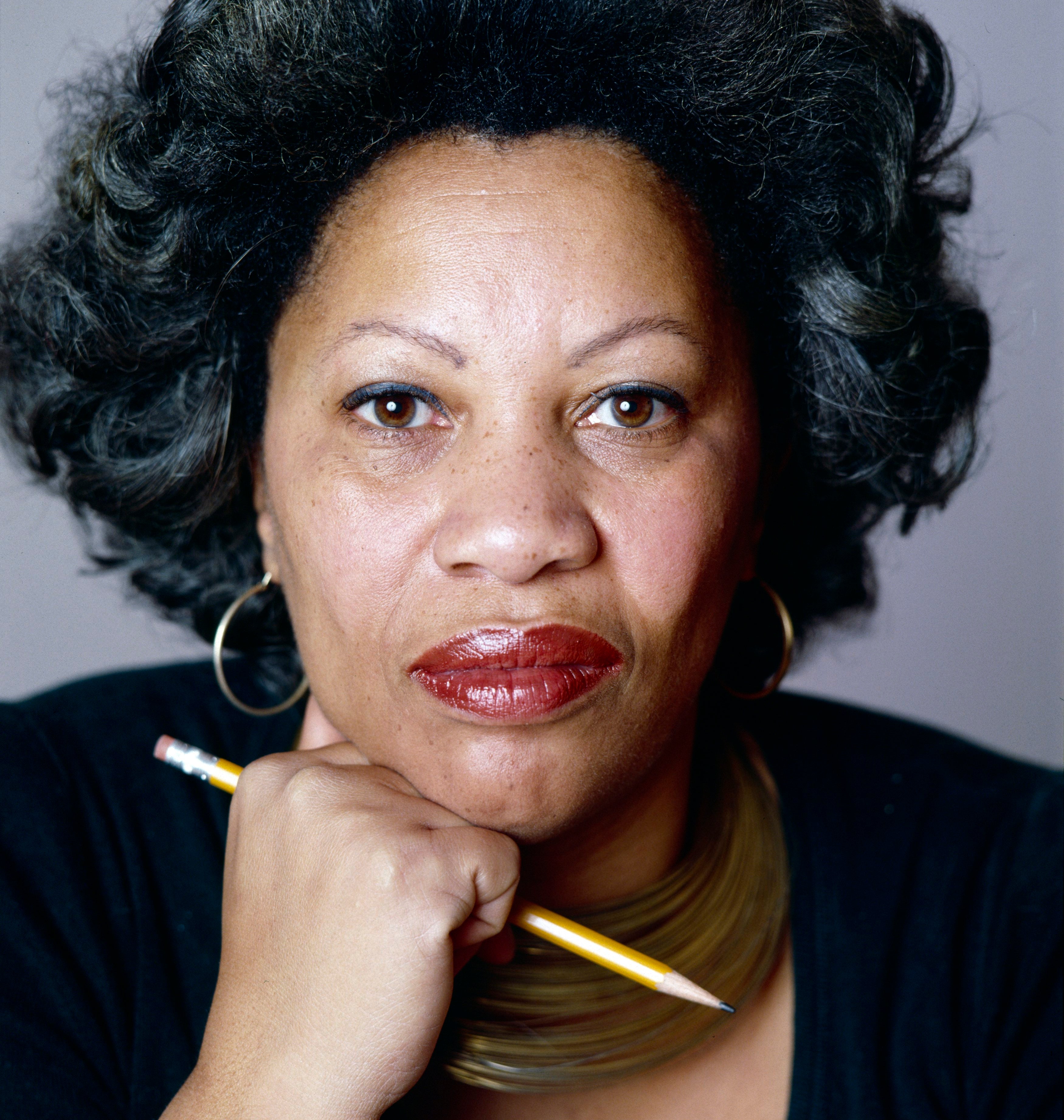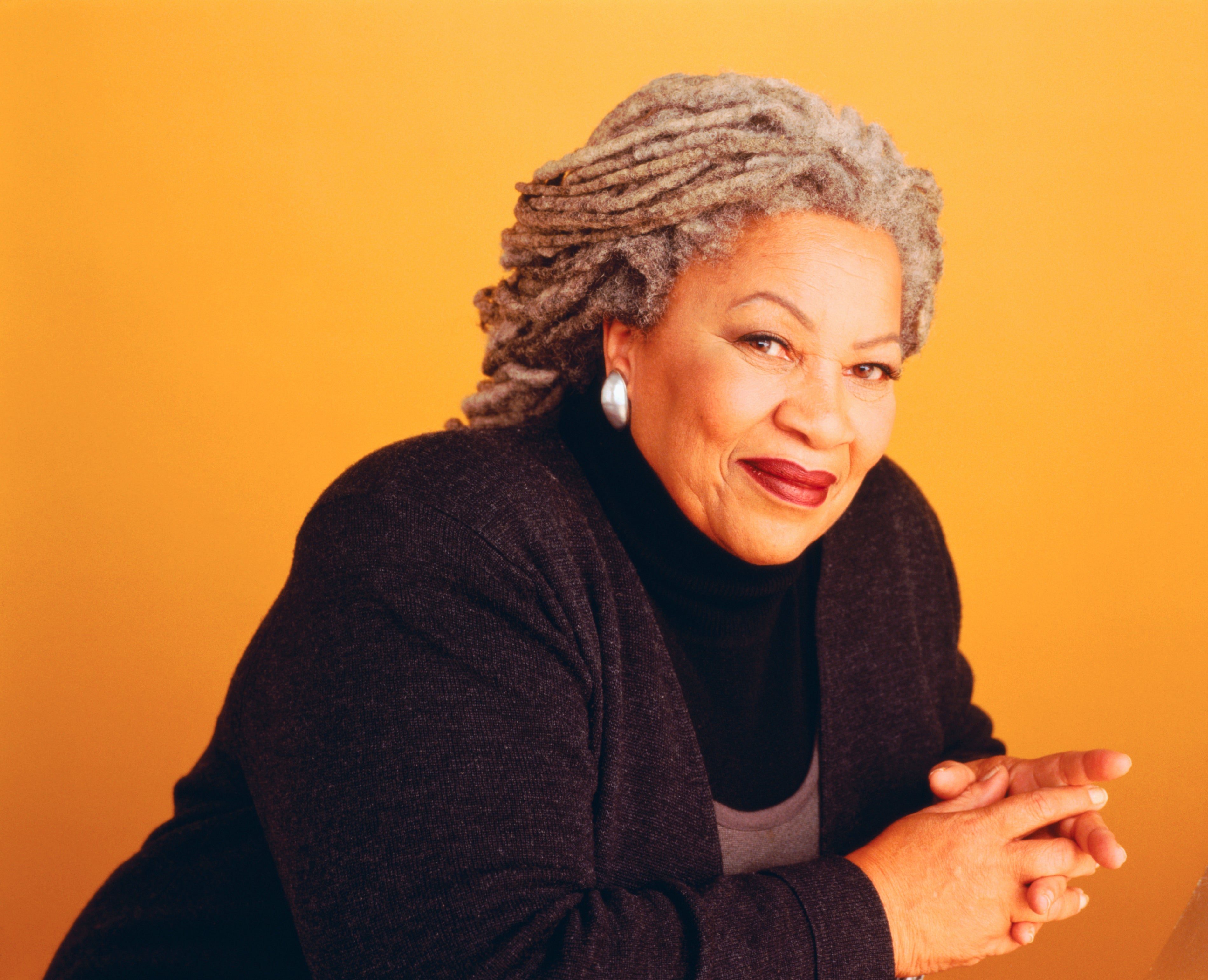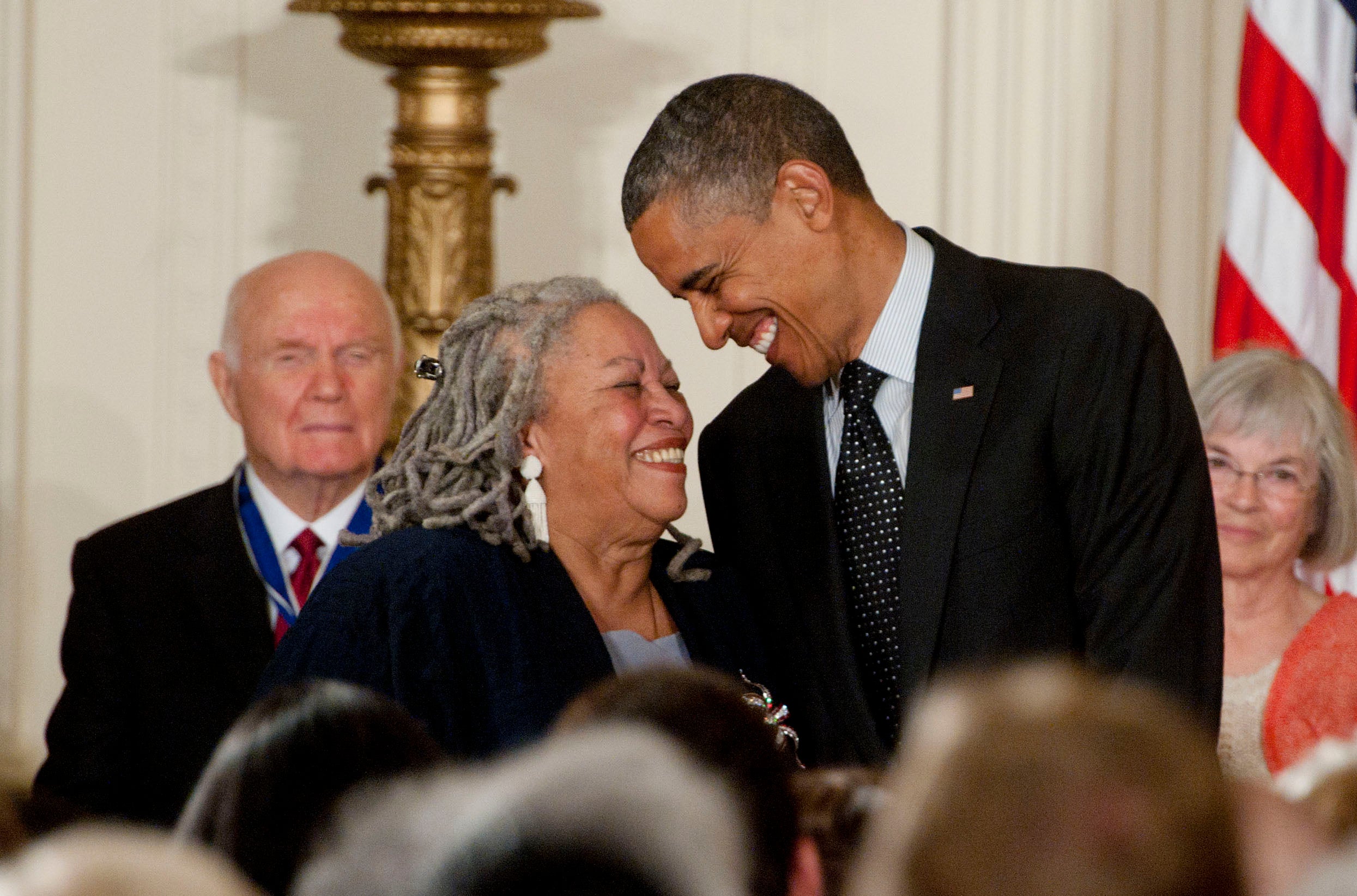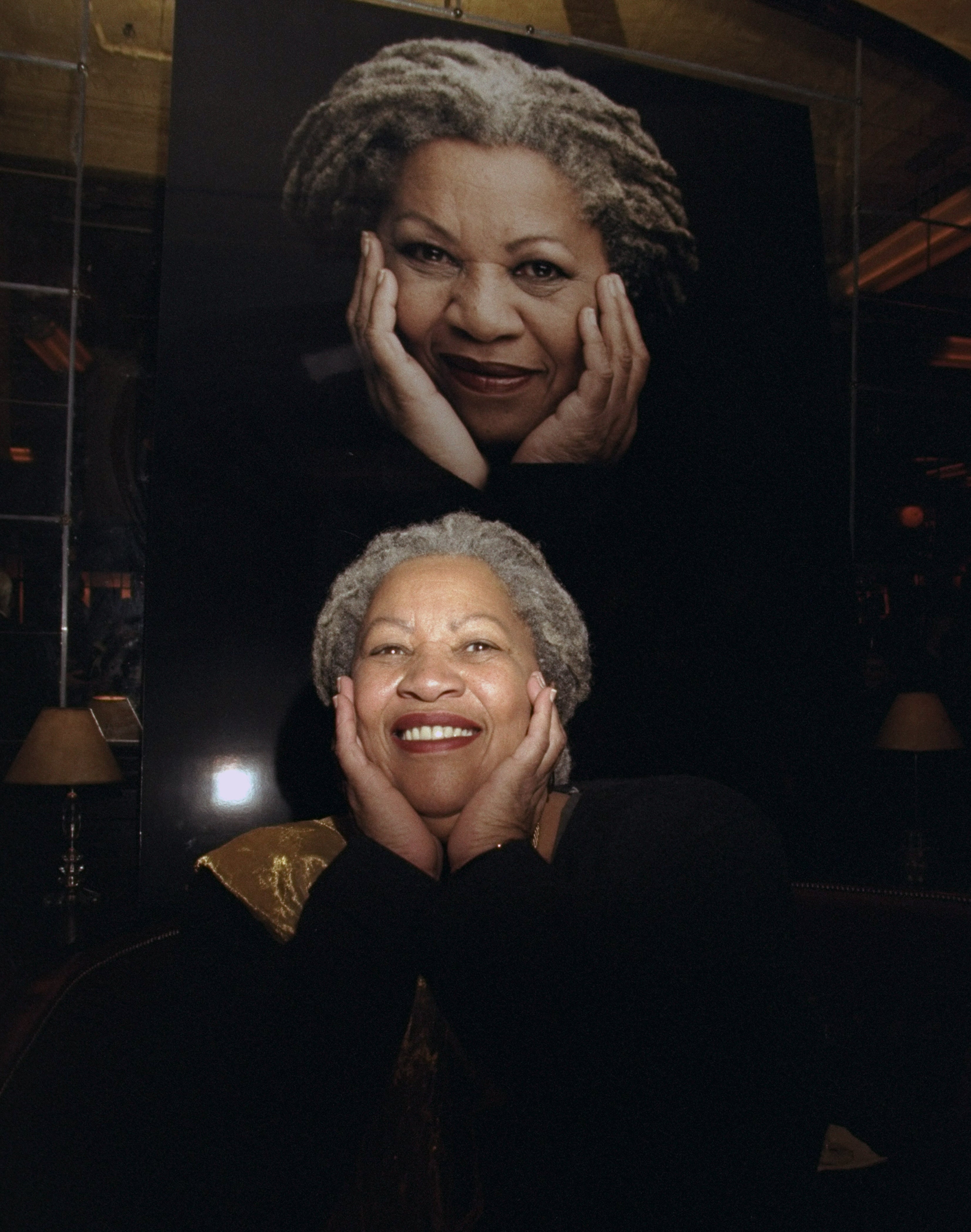The first time I saw Toni Morrison, she was sitting on the carpet of her office at Random House, wearing green garden shorts and a huge straw hat, piles of manuscripts on the floor around her. She held a single page in her hands, and she was laughing. She’d called out to me, a rising college junior who’d scored a summer internship working with the editor at Knopf. She was already an author, acclaimed for her tender yet wrenching classics, Sula, The Bluest Eye, and her 1977 breakthrough novel, Song of Solomon, the epic tale of a Black man.
“Compose a letter for me,” she said, as I walked into her spacious, light-filled office, notebook and pen at the ready. “I’d like you to let this young woman know that I’d be happy to discuss editing her book.” I stood there for a beat longer, in case she wanted to dictate the letter. She waved one hand dismissively, her eyes dancing with that fire that lived in them. “You make up the words,” she said. “I assume you’re here because you want to write, so write.”

That day, Toni Morrison became the godmother of my writing life, the woman who told me, “So write.” It was so simple, yet forever after, when the way forward in a piece of writing seemed murky, I heard her words and pressed forward, trusting the muse to find me.
A year later, she was chosen as the commencement speaker at my graduation from Barnard, an all women’s college. We sat rapt as she exhorted our class to never leave each other behind “on the killing floor of professional women’s worlds.” She used Cinderella’s stepsisters as her cautionary tale, expressing the sorrow she felt at this story of two women abusing another woman. “You are moving in the direction of freedom,” she told the young women seated before her, “and the function of freedom is to free somebody else.”
It’s no wonder I have carried her unapologetically feminist call to work and action in my consciousness all these years, not just as a writer but also as a Black woman. When Toni Morrison was awarded the Nobel Prize for Literature in 1993, I sobbed through my cheers that the world had recognized the genius of the little Black girl born Chloe Ardelia Wofford in Lorain, Ohio on February 18, 1931. Her father and mother, a welder and a homemaker, had migrated north to escape the racism of the south, where her father had witnessed the lynching of two Black men. Her grandmother also lived with the family, and everybody told stories and shared folktales, seeding the poetry that no doubt was already unspooling itself in young Chloe’s head.

She attended Howard University, where she studied with Alain Locke, keeper of the history of the Harlem Renaissance; received her master’s degree in English from Cornell; then returned to teach Literature at Howard—Stokely Carmichael was one of her students. She married Harold Morrison, an architect, in 1958, and had two sons, Ford and Slade, before divorcing six years later. It was during this period that she changed her name to Toni because people kept mispronouncing Chloe, and wrote The Bluest Eye, about a little Black girl so unable to see her own beauty that she begs God to turn her eyes blue.
Though well reviewed, the book was largely ignored at first. To support herself and her sons, Toni Morrison became an editor at Random House, where she mentored a generation of Black writers, including Angela Davis and Toni Cade Bambara. She also kept writing, becoming a celebrated literary figure after Song of Solomon and going on to win a 1988 Pulitzer Prize for Beloved, based on the true story of an escaped slave who, when recaptured, kills her infant child rather than have her grow up in slavery. The author would receive many more accolades, including a Presidential Medal of Freedom from the nation’s first African-American president in 2012.

Toni Morrison, who taught at Princeton until her retirement in 2006, utterly transformed the American literary canon. During a sublime six-decade career, she gave us 11 novels, two plays, five children’s books, several non-fiction works and a libretto. She insisted always on writing from the perspective of her Black characters, ensuring that the White gaze, so pervasive in American society, was never the dominant view. Toni Morrison presented us to the world in all our complicated grief and glory, with a poet’s hand and a lover’s heart, and she changed the very consciousness of an era.
Some years into my own love affair with writing, I landed happily on the ESSENCE masthead. Susan Taylor was the editor-in-chief, and she invited Toni Morrison for a luncheon with the editors. I was a new mother then, and even in this, Toni Morrison would guide me. “You are your child’s source of security in the world,” I remember her saying when someone asked her about partnering with her late son Slade on a children’s book. “When your children come into a room you are in, your eyes light up in a way that confirms for them the value of their very being.”

Toni Morrison’s eyes lit up for us in every room where she was. Through her work and her life, she set us free, simply by assuring us that no matter what we might face in this world, by her we were beloved.
